Yumiko Takehara
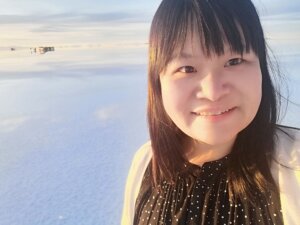 My background is as a midwife and nurse, and I chose the 2020 MSc satellite course because I wanted to learn more in-depth in graduate school after studying in the 2019 TTM (Tropical Medicine Training Course). I was out of the country as a student because I was studying while working as an overseas health adviser for JICA. With a 13-hour time difference, I had to watch recordings of classes repeatedly and make arrangements for late nights and early mornings for on-time discussions with my supervisor, group work, and thesis review meetings.
My background is as a midwife and nurse, and I chose the 2020 MSc satellite course because I wanted to learn more in-depth in graduate school after studying in the 2019 TTM (Tropical Medicine Training Course). I was out of the country as a student because I was studying while working as an overseas health adviser for JICA. With a 13-hour time difference, I had to watch recordings of classes repeatedly and make arrangements for late nights and early mornings for on-time discussions with my supervisor, group work, and thesis review meetings.
The MSc brings together students from various backgrounds, and the research content is diverse, including experiments, public health, innovation, and systematic reviews. The classes are highly flexible except for the required courses, and students can choose types in their field of interest. Onsite students can focus on their research because there are no long-term overseas training programs. Also, a large percentage of the students are international students. The monthly homeroom with the course director, Prof. Hirayama, is a relaxing time to discuss each other’s research and daily life, connecting the onsite and satellite facilities. My research was a questionnaire survey of mothers in Bolivia, South America, regarding mother-to-child transmission of Chagas disease, and being able to conduct research in the field through trial and error was a great experience.
It took much work to study while working abroad. Still, I could complete the program thanks to the understanding of my colleagues, my supervisor and the faculty of TMGH, who patiently guided me. Also, my classmates at the onsite satellite encouraged each other and the support of the academic affairs staff. I also learned to never give up on my studies and research until the end. My studies and experiences at TMGH will be a source of inspiration for me in the future.
To those considering the MSc course, I recommend the highly flexible MSc course and the environment where you can confidently study and research under the tremendous support of TMGH.

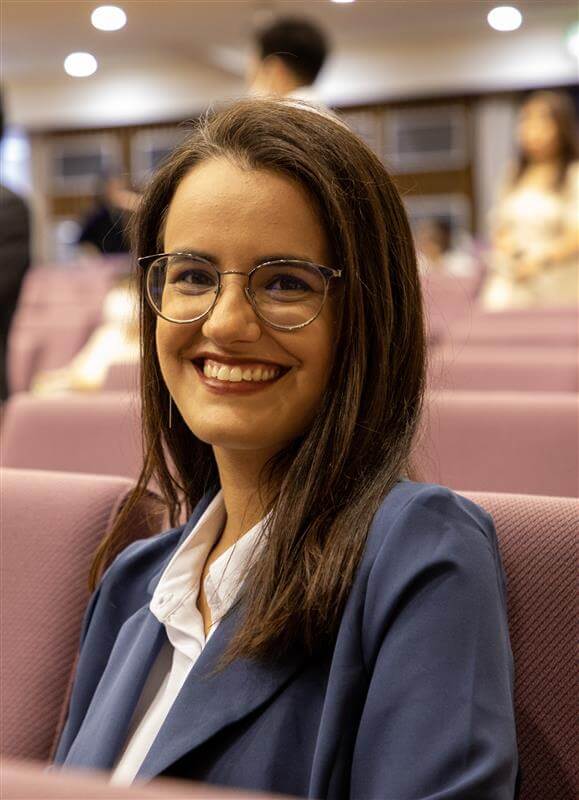 As a biologist from South America, I have experience conducting research on infectious agents responsible for tropical diseases. In my pursuit to strengthen my skills in molecular biology and research, I was awarded a scholarship from the Japanese Ministry of Education, Culture, Sports, Science and Technology (Monbukagakusho). While exploring academic opportunities in Japan, I came across the Master’s Program in Health Innovation at TMGH.
As a biologist from South America, I have experience conducting research on infectious agents responsible for tropical diseases. In my pursuit to strengthen my skills in molecular biology and research, I was awarded a scholarship from the Japanese Ministry of Education, Culture, Sports, Science and Technology (Monbukagakusho). While exploring academic opportunities in Japan, I came across the Master’s Program in Health Innovation at TMGH.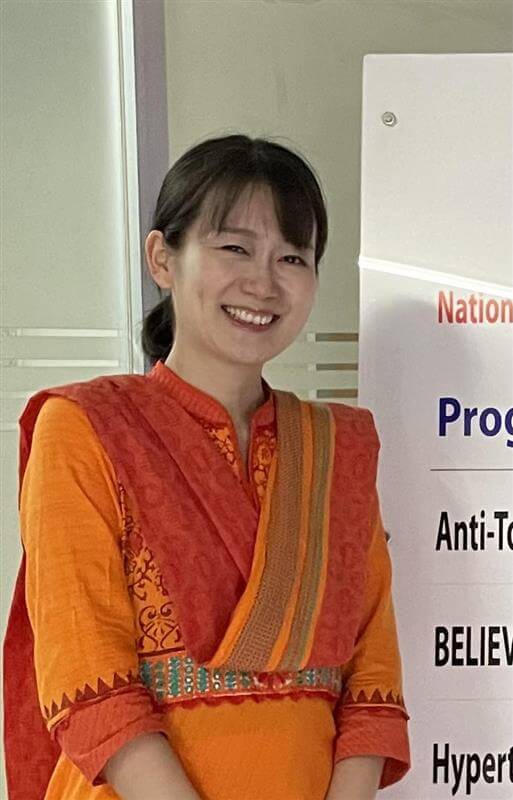 After earning my degree from a university school of nursing, I began my career as a public health nurse in a local government, where I was primarily engaged in maternal and child health services as well as infectious disease control. Having aspired to work in international cooperation since high school, I took a personal development leave and was dispatched to Nepal for two years as a member of the Japan Overseas Cooperation Volunteers (JOCV). There, I witnessed firsthand the reality that, despite having established health systems and policies, many rural women were unable to benefit from them. This experience led me to question how people in vulnerable situations could access appropriate health services and lead healthy lives. I decided to pursue my studies at this university to acquire specialized knowledge and systematically develop practical intervention skills.
After earning my degree from a university school of nursing, I began my career as a public health nurse in a local government, where I was primarily engaged in maternal and child health services as well as infectious disease control. Having aspired to work in international cooperation since high school, I took a personal development leave and was dispatched to Nepal for two years as a member of the Japan Overseas Cooperation Volunteers (JOCV). There, I witnessed firsthand the reality that, despite having established health systems and policies, many rural women were unable to benefit from them. This experience led me to question how people in vulnerable situations could access appropriate health services and lead healthy lives. I decided to pursue my studies at this university to acquire specialized knowledge and systematically develop practical intervention skills.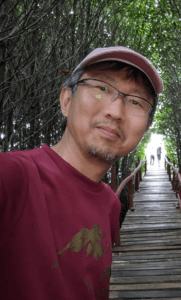 My first encounter to tropical medicine and global health was through my carrier in Quarantine Station in Japan (border measure against high consequence infectious diseases at international airports and seaports), which led me to Diploma of Tropical Medicine and Hygiene course at TMGH in 2021, followed by admission to Master of Tropical Medicine in 2022.
My first encounter to tropical medicine and global health was through my carrier in Quarantine Station in Japan (border measure against high consequence infectious diseases at international airports and seaports), which led me to Diploma of Tropical Medicine and Hygiene course at TMGH in 2021, followed by admission to Master of Tropical Medicine in 2022.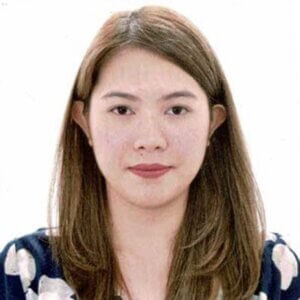
 My background is as a midwife and nurse, and I chose the 2020 MSc satellite course because I wanted to learn more in-depth in graduate school after studying in the 2019 TTM (Tropical Medicine Training Course). I was out of the country as a student because I was studying while working as an overseas health adviser for JICA. With a 13-hour time difference, I had to watch recordings of classes repeatedly and make arrangements for late nights and early mornings for on-time discussions with my supervisor, group work, and thesis review meetings.
My background is as a midwife and nurse, and I chose the 2020 MSc satellite course because I wanted to learn more in-depth in graduate school after studying in the 2019 TTM (Tropical Medicine Training Course). I was out of the country as a student because I was studying while working as an overseas health adviser for JICA. With a 13-hour time difference, I had to watch recordings of classes repeatedly and make arrangements for late nights and early mornings for on-time discussions with my supervisor, group work, and thesis review meetings.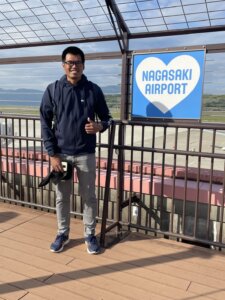 Short message from Thanawat Khongyot, That is my best experience time living abroad outside my country. An unforgettable experience in Japan has begun. My name is Thanawat Khongyot from Thailand. I graduated M.Sc. (Health Innovation) from the School of Tropical Medicine and Global Health, Nagasaki University. Before I came here, “Tropical medicine” and “Global Health” were the main topics that I wanted to learn and bring this knowledge to develop the health system in my country. TMGH is the first school where I decided to come and discover these topics. I would say that “Experience-based knowledge” is one of my best appreciations. During my stay here, you can learn lectures from different disciplines worldwide in the international environment. You can get the best multicultural experiences with other students in the class. Health Innovation course is one of my recommended course to study. This course allows you to do what you want based on your laboratory and non-laboratory experiences. They also provided the extra-curriculum class for the students who wished to expand their skills and knowledge. TMGH facilities always support your research and academics, together with NEKKEN (Japan’s most prominent tropical medicine institute). Honestly, I feel like TMGH is my second home; professors, administrative staff, and friends always care for and support each other. TMGH changed me to be different and stimulated me to be a good researcher. Thank you again for the best experience during my stay here.
Short message from Thanawat Khongyot, That is my best experience time living abroad outside my country. An unforgettable experience in Japan has begun. My name is Thanawat Khongyot from Thailand. I graduated M.Sc. (Health Innovation) from the School of Tropical Medicine and Global Health, Nagasaki University. Before I came here, “Tropical medicine” and “Global Health” were the main topics that I wanted to learn and bring this knowledge to develop the health system in my country. TMGH is the first school where I decided to come and discover these topics. I would say that “Experience-based knowledge” is one of my best appreciations. During my stay here, you can learn lectures from different disciplines worldwide in the international environment. You can get the best multicultural experiences with other students in the class. Health Innovation course is one of my recommended course to study. This course allows you to do what you want based on your laboratory and non-laboratory experiences. They also provided the extra-curriculum class for the students who wished to expand their skills and knowledge. TMGH facilities always support your research and academics, together with NEKKEN (Japan’s most prominent tropical medicine institute). Honestly, I feel like TMGH is my second home; professors, administrative staff, and friends always care for and support each other. TMGH changed me to be different and stimulated me to be a good researcher. Thank you again for the best experience during my stay here.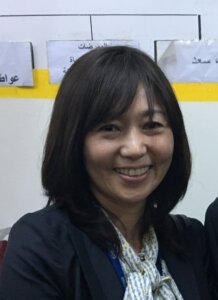 As a nurse and midwife, I have been involved in the clinical care of women with social and economic difficulties, as well as in humanitarian assistance in disaster areas for NGOs. Through those experiences, I noticed refugee and migrant women and children were particularly vulnerable under those settings, so I wanted to learn how to build a system that facilitates access to health, which is a key role for the empowerment of them.
As a nurse and midwife, I have been involved in the clinical care of women with social and economic difficulties, as well as in humanitarian assistance in disaster areas for NGOs. Through those experiences, I noticed refugee and migrant women and children were particularly vulnerable under those settings, so I wanted to learn how to build a system that facilitates access to health, which is a key role for the empowerment of them.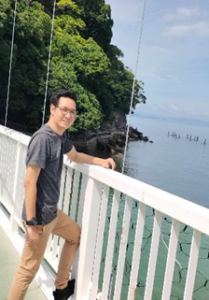 TMGH is dedicated to improving global health via innovative research, education, and collaboration. With a faculty of renowned professionals and state-of-the-art facilities, TMGH provides a supportive academic development and innovation atmosphere.
TMGH is dedicated to improving global health via innovative research, education, and collaboration. With a faculty of renowned professionals and state-of-the-art facilities, TMGH provides a supportive academic development and innovation atmosphere.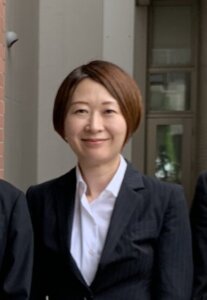 The experience on the Diploma of Tropical Medicine and Hygiene (DTM&H) gave me the opportunity to study again on the Master of Tropical Medicine (MTM) for further studies. My initial motivation was to become a doctor who could contribute to global health.
The experience on the Diploma of Tropical Medicine and Hygiene (DTM&H) gave me the opportunity to study again on the Master of Tropical Medicine (MTM) for further studies. My initial motivation was to become a doctor who could contribute to global health.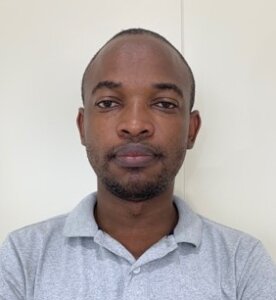 Hi ! This is Augustin Kabongo; I am from DR Congo. I came to Japan as MEXT student through embassy recommendation and joined TMGH in October 2021. Studying the Master of Tropical Medicine in TMGH was exciting. As other students, I got an exceptional international experience that I hope will help me in my future career. For 2021-2022 academic year, classes were interactive with students from over 15 different countries and courses were taught by experts in a well-equipped environment that facilitates learning process and advanced research with full support of the teaching staff. Now more than ever, I feel ready to face global health issues and tropical diseases. And for those who are interested in global health and tropical medicine, I strongly recommend joining TMGH, I strongly recommend joining TMGH.
Hi ! This is Augustin Kabongo; I am from DR Congo. I came to Japan as MEXT student through embassy recommendation and joined TMGH in October 2021. Studying the Master of Tropical Medicine in TMGH was exciting. As other students, I got an exceptional international experience that I hope will help me in my future career. For 2021-2022 academic year, classes were interactive with students from over 15 different countries and courses were taught by experts in a well-equipped environment that facilitates learning process and advanced research with full support of the teaching staff. Now more than ever, I feel ready to face global health issues and tropical diseases. And for those who are interested in global health and tropical medicine, I strongly recommend joining TMGH, I strongly recommend joining TMGH.